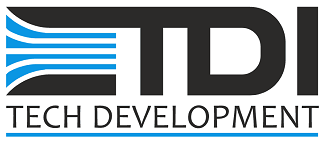Introduction
In the fast-paced and ever-evolving business landscape, the ability to manage complex programs and initiatives is crucial for organizations aiming to achieve their strategic goals. This is where Managing Successful Programmes (MSP) Training comes into play. The MSP Course provides a structured framework to guide professionals in effectively managing and delivering transformational change within organizations. From aligning projects with strategic objectives to realizing benefits and managing risks, the MSP Course equips individuals with the necessary skills to navigate the challenges of Programme management.
Outline: Managing Successful Programmes Training, MSP Course
Below is a comprehensive outline of the key aspects covered in the article, providing insights into Managing Successful Programmes Training and its significance.
Understanding MSP The Foundation
Managing Successful Programmes (MSP) is a holistic framework designed to help organizations effectively manage and deliver transformational programs. It provides a structured approach to Programme management, ensuring that projects and initiatives are aligned with the organization’s strategic objectives. MSP Training lays the foundation for professionals to understand the principles, processes, and techniques involved in successful Programme management.
MSP emphasizes the importance of leadership, stakeholder engagement, benefits realization, and risk management throughout the program’s lifecycle. By learning the intricacies of MSP, individuals gain insights into how to navigate complexities, mitigate risks, and maximize the value delivered by programs.
Advantages of MSP Training
Enrolling in an MSP Course offers numerous advantages to both professionals and organizations. Firstly, it equips individuals with a comprehensive understanding of Programme management best practices, enhancing their ability to lead and execute complex initiatives. Moreover, MSP Training empowers organizations to establish a consistent approach to Programme management, leading to improved project success rates and streamlined processes.
MSP also enables better communication among teams and stakeholders, fostering collaboration and alignment with strategic goals. The standardized framework provided by MSP Training contributes to enhanced risk management, stakeholder engagement, and benefits realization, ultimately leading to successful Programme outcomes.
The Components of MSP Framework
The MSP framework comprises several key components that collectively contribute to effective Programme management. These components include:
- Vision: Defining the desired outcomes and benefits of the program.
- Leadership and Stakeholder Engagement: Ensuring commitment and collaboration from key stakeholders.
- Benefits Management: Identifying, tracking, and realizing the intended benefits.
- Blueprint Design and Delivery: Planning and designing the program’s structure and components.
- Planning and Control: Developing a roadmap for Programme execution and monitoring progress.
- Risk and Issue Management: Identifying and addressing potential risks and issues.
- Quality and Assurance Management: Ensuring that the Programme meets quality standards.
- Transformational Flow: Executing the program’s activities and delivering outcomes.
These components work in tandem to provide a comprehensive and structured approach to Programme management, promoting efficiency and success.
The Role of Programme Managers
In the realm of Programme management, Programme managers play a pivotal role in orchestrating and overseeing the execution of complex initiatives. They serve as leaders who drive the program’s vision, manage resources, facilitate communication among teams, and ensure alignment with strategic objectives.
Programme managers are responsible for defining the program’s scope, setting priorities, and making critical decisions. They navigate challenges, manage risks, and adapt strategies as needed to achieve successful outcomes. MSP Training equips Programme managers with the skills to excel in these multifaceted roles, contributing to the overall success of the organization.
Aligning Programs with Organizational Strategies
One of the key objectives of MSP Training is to enable professionals to align programs with the overarching strategies of the organization. This alignment ensures that every project and initiative contributes to the organization’s long-term goals. By learning how to map programs to strategic objectives, individuals can prioritize projects that have the highest potential for value delivery and business impact.
Stakeholder Engagement in Programme Management
Effective stakeholder engagement is crucial for the success of any program. MSP Training emphasizes the significance of identifying and engaging stakeholders at various levels. This involves understanding their expectations, concerns, and contributions to the program. By fostering open communication and collaboration, Programme managers can build strong relationships that facilitate the smooth execution of initiatives.
Governance: Ensuring Effective Oversight
Governance within the MSP framework provides the structure and mechanisms for effective decision-making, oversight, and control. It establishes roles and responsibilities, defines accountability, and ensures that the Programme is aligned with the organization’s governance framework. Effective governance helps in managing risks, resolving issues, and making informed decisions to steer the Programme towards success.
Risk Management within MSP
Risk management is an integral part of Programme management, and MSP Training equips professionals with the tools and techniques to identify, assess, and mitigate risks. By proactively addressing potential challenges, Programme managers can minimize disruptions and uncertainties that could impact the program’s outcomes.
Benefits Realization: Maximizing Value
Central to MSP Training is the concept of benefits realization – the process of identifying, tracking, and ultimately realizing the anticipated benefits of a program. By defining measurable benefits and monitoring progress, Programme managers can ensure that the Programme aligns with its intended purpose and provides tangible value to the organization.
Customizing MSP Framework for Different Organizations
While the MSP framework provides a standardized approach to Programme management, it can be tailored to suit the unique needs and context of different organizations. This flexibility allows organizations to adapt the framework to their specific industry, culture, and goals, ensuring that the approach remains relevant and effective.
MSP Training Levels and Certification
MSP Training is typically offered at different levels, each catering to specific skill and knowledge requirements. These levels may include Foundation, Practitioner, and Advanced Practitioner. Certification in MSP demonstrates an individual’s proficiency in Programme management and their ability to apply MSP principles in real-world scenarios.
Who Should Attend MSP Training?
MSP Training is valuable for a wide range of professionals, including Programme managers, project managers, senior executives, change managers, and individuals involved in strategic planning and execution. Anyone responsible for driving and delivering transformational change within an organization can benefit from the insights and skills gained through MSP Training.
Real-world Application of MSP
MSP principles and practices find real-world application across various industries and sectors. From government agencies to private enterprises, MSP enables organizations to successfully manage large-scale programs, navigate complexities, and achieve strategic goals. The adaptability of MSP makes it a versatile framework that can be tailored to address the specific challenges of different contexts.
Case Studies: Successful MSP Implementation
Several organizations have achieved remarkable success through the implementation of MSP principles. For instance, a global technology company utilized MSP to streamline the rollout of a new software platform, resulting in improved efficiency and user satisfaction. These case studies highlight how MSP can be a game-changer in achieving Programme success.
MSP and Project Management: Key Differences
While Programme management and project management are related disciplines, they have distinct differences. Project management focuses on delivering specific outputs within predefined constraints, while Programme management oversees a collection of projects and initiatives that collectively achieve strategic objectives. MSP Training clarifies these distinctions and equips professionals with the skills to excel in both domains.
Industry Recognition and Career Opportunities
Professionals who undergo MSP Training and earn certification are recognized for their expertise in Programme management. This recognition enhances career opportunities and credibility, opening doors to leadership roles, strategic positions, and responsibilities related to managing organizational change.
FAQs about Managing Successful Programmes Training
Q: What is the main goal of MSP Training?
A: The main goal of MSP Training is to equip professionals with the skills and knowledge to effectively manage and deliver complex transformational programs, align projects with strategic goals, engage stakeholders, and achieve successful outcomes.
Q: Who can benefit from MSP Training?
A: MSP Training benefits a wide range of professionals, including Programme managers, project managers, change managers, and senior executives involved in strategic planning and execution.
Q: How does MSP Training contribute to benefits realization?
A: MSP Training emphasizes benefits management, which involves identifying, tracking, and realizing the intended benefits of a program. Professionals learn techniques to ensure that programs deliver tangible value to the organization.
Q: Can MSP principles be customized for different industries?
A: Yes, MSP principles can be customized to suit the specific needs and context of different industries and organizations. This flexibility ensures that the framework remains relevant and effective.
Q: What are the key components of the MSP framework?
A: The MSP framework comprises components such as vision, leadership and stakeholder engagement, benefits management, blueprint design and delivery, planning and control, risk and issue management, quality and assurance management, and transformational flow.
Q: How does MSP Training enhance risk management?
A: MSP Training equips professionals with tools and techniques to identify, assess, and mitigate risks. This proactive approach helps in minimizing disruptions and uncertainties that could impact Programme outcomes.
Conclusion
In the dynamic landscape of modern business, the ability to manage complex programs effectively is a skill that organizations value greatly. Managing Successful Programmes (MSP) Training equips professionals with the expertise to lead, manage, and deliver transformational change. From aligning programs with strategic goals to engaging stakeholders, managing risks, and realizing benefits, MSP Training provides a comprehensive toolkit for Programme managers. By mastering MSP principles, professionals not only enhance their careers but also contribute to the overall success and growth of their organizations.





